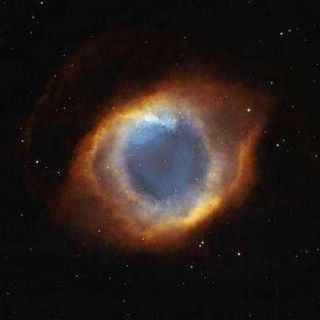Alexander Solzhenitsyn
I can't add much to what's already been written upon the death of Alexander Solzhenitsyn. I remember the hoopla surrounding his exile to the United States back in the 70's. I remember people writing about his books. I even read one, One Day in the Life of Ivan Denisovich. I'm sure that's the one that most other people read who only read one of Solzhenitzyn's books. It's short. But it's a great book. I reread it about a year ago. I got the greater appreciation of it that comes with age, experience, and the knowledge that, although it is a work of fiction, it's based on facts that he and millions of Russians had lived through, and that others still live through today, whether in Russia, or one of the other tyrannies on this planet. I also remember reading an interview with him. He said the book was based on a good day in the gulag. We wouldn't be able to stand reading about a bad day.Over at American Digest, there's a link to Solzhenitsyn's 1978 Harvard commencement speech. It packs quite a punch. He didn't think the American mall culture was all that great. Living only to hoard vast quantities of merchandise was not his idea of a life well spent. He also condemned the lack of courage in our elites.
A Decline in Courage [. . .]and
may be the most striking feature which an outside observer notices in the West in our days. The Western world has lost its civil courage, both as a whole and separately, in each country, each government, each political party and of course in the United Nations. Such a decline in courage is particularly noticeable among the ruling groups and the intellectual elite, causing an impression of loss of courage by the entire society. Of course there are many courageous individuals but they have no determining influence on public life. Political and intellectual bureaucrats show depression, passivity and perplexity in their actions and in their statements and even more so in theoretical reflections to explain how realistic, reasonable as well as intellectually and even morally warranted it is to base state policies on weakness and cowardice. And decline in courage is ironically emphasized by occasional explosions of anger and inflexibility on the part of the same bureaucrats when dealing with weak governments and weak countries, not supported by anyone, or with currents which cannot offer any resistance. But they get tongue-tied and paralyzed when they deal with powerful governments and threatening forces, with aggressors and international terrorists.
Should one point out that from ancient times decline in courage has been considered the beginning of the end?
no weapons, no matter how powerful, can help the West until it overcomes its loss of willpower. In a state of psychological weakness, weapons become a burden for the capitulating side. To defend oneself, one must also be ready to die; there is little such readiness in a society raised in the cult of material well-being. Nothing is left, then, but concessions, attempts to gain time and betrayal.From 1978 until today I think things have only gotten worse. Facing the Islamofacists, many of our leaders, our MSM, and our intellectual elites have gone even further into their default mode of preemtive surrender. Those of us who refuse to submit are marginalized. We're called racists, Islamophobes and worse. Much like the image of the terrorist is softened by referring to Hamas and Hezbollah as "militants" and "extremists", we who try to get our leaders to fight against them (or at least call them by their proper title) get also get labeled as extremists. Somehow, sitting at a computer writing about the dehumanizing aspects of Sharia law and questioning why so many in the West are submitting to the demands of a theocratic, totalitarian movement firmly lodged in a seventh century desert culture, makes us the equivalent of Islamic murderers of infidel women and children.
Back when I was young, and manufacturing jobs were being lost to automation, many writers,(including Eric Hoffer, which proves that nobody is 100% right) predicted that people would now have more time to devote to study and would be able to make time for science, history, philosophy, and the general improvement of the intellect and the soul. Who could have predicted that with so many "great shows" to watch on TV, that there wouldn't be as much time for self-improvement as we thought?
Right now, I'm near the end of Tacitus' Histories. In it, he relates the period of civil wars between the death of Nero and the ascension of Vespasian to the post of Emperor. In between those two, there were three other very short-term emperors who ruled for as long as their loyalists could keep them in power. The whole period was about a year long. One of Tacitus' themes in this work, and apparently it's echoed by other ancient historians, is that extended periods of peace make us weak and lazy. He gives examples of Roman legions being given too much freedom or too much laxity, and then being useless in battle, or worse, becoming whiners, not willing to do their jobs, attacking their commanders, and degenerating into mobs. According to Gibbon, if I remember correctly, this period of history is shortly after the beginning of the decline of the Roman Empire.
So we don't want to fight for our own freedom. We want to shop for goofy stuff, as shown in this post at Pen of Jen, and hope that all of the bad things go away by themselves (or maybe if we are really good, and we vote correctly in November, the Obamessiah will create a progressive utopia for all of us).
Personally, I prefer peace. I've changed though. I understand now, as I didn't understand very well as a young punk, that there are times when you do have to stand up and fight for what you believe in, because if you don't, someone will take valuable things away from you, you know, things like liberty, freedom, and perhaps your life. I understand that we in the United States do have enemies that want to destroy us in the worst way and that we have to defend ourselves against them. I understand that we, like other western nations have lost some of the moral clarity that allows us to do what we need to do. Look what's happening in Canada. They are slowly, in the name of multiculturalism and freedom from insult, knuckling under to the demands of the Islamists in their midst.
Has peace and the greatest prosperity in the history of mankind caused us to lose our spiritual way? The following quote is another piece of Solzhenitsyn's speech, but Tacitus might agree with it.
If humanism were right in declaring that man is born to be happy, he would not be born to die. Since his body is doomed to die, his task on earth evidently must be of a more spiritual nature. It cannot unrestrained enjoyment of everyday life. It cannot be the search for the best ways to obtain material goods and then cheerfully get the most out of them. It has to be the fulfillment of a permanent, earnest duty so that one's life journey may become an experience of moral growth, so that one may leave life a better human being than one started it. It is imperative to review the table of widespread human values. Its present incorrectness is astounding. It is not possible that assessment of the President's performance be reduced to the question of how much money one makes or of unlimited availability of gasoline. Only voluntary, inspired self-restraint can raise man above the world stream of materialism.I admit, I want stuff. I want specific stuff, but it's still stuff. I want books. I could spend a huge amount of money on the books I want. I could spend another huge amount on the CD's that I want. I don't need them, but I want them. It's an aspect of my life I have to examine.
Solzhenitsyn has given me a lot to think about. At some point, when I have a few extra dollars in my pocket, I'm going to pick up a used copy of The Gulag Archipelago. They're all over the place in every used book store I visit. I've seen them all the time for years, but like everyone else, I paid no attention to the book until the death of the author put it back in the public eye. I imagine it was due to the size of the book, but a lot of people who bought it, dumped it without reading it. That's good for me because I'll be able to get a nice used copy cheap and have many hours of reading pleasure. And I think it's a book worth owning so I can justify buying it. It's not just stuff. It's a twentieth century classic by a Nobel prize winning author and man who demonstrated more bravery and fortitude than I hope I ever have to demonstrate.
Labels: books, Solzhenitsyn, Tacitus

 CHALLAH AKBAR
CHALLAH AKBAR











0 Comments:
Post a Comment
<< Home